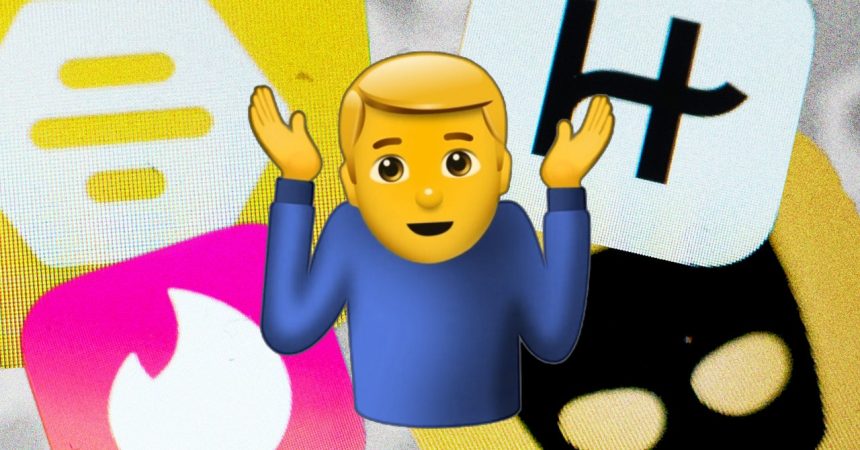The contemporary dating landscape, characterized by an over-reliance on apps, has fostered a pervasive sense of fatigue and disillusionment among singles. The endless swiping, superficial connections, and the ever-present ghosting phenomenon have left many feeling exhausted and questioning the efficacy of these platforms. This dissatisfaction has spurred the emergence of a new generation of dating apps, many of which are powered by artificial intelligence, promising to revolutionize the search for connection. These apps aim to address the pain points of traditional dating apps by automating aspects of the process, from crafting witty opening lines to navigating awkward small talk. While the long-term success of these AI-driven platforms remains to be seen, they represent a significant shift in the evolving narrative of online romance.
The rise of AI in dating reflects a growing desire for more curated and personalized experiences. Apps like Volar, Rizz, Iris, and Elate employ AI algorithms to optimize user profiles, suggest compatible matches, and even facilitate initial conversations. This automation seeks to streamline the dating process, removing some of the tediousness and uncertainty that often accompany traditional dating apps. Beyond matchmaking, AI has also infiltrated the realm of companionship, with apps like EVA AI and Luna offering virtual girlfriends designed to provide emotional support and simulated intimacy. This trend highlights a growing acceptance of AI as a potential partner, blurring the lines between human connection and technological simulation.
However, the fundamental challenges of online dating persist, even with the integration of AI. The story of JB, a self-proclaimed power dater, exemplifies the ongoing struggles faced by singles navigating the digital dating landscape. Despite embracing the convenience and accessibility of apps like Hinge and Raya, JB expresses a profound sense of burnout stemming from countless dates, superficial interactions, and the constant emotional rollercoaster of nascent relationships. His experience underscores the limitations of technology in replicating genuine connection and the enduring need for authentic human interaction.
JB’s experiences reveal the pervasiveness of dishonesty and game-playing within the online dating sphere. His encounter with a woman who propositioned him on their third date, only to later lie about seeing other people, exemplifies the toxic dynamics that can emerge in this environment. Such encounters contribute to the overall sense of disillusionment and reinforce the perception that dating apps, while offering a vast pool of potential partners, often fall short of fostering genuine and meaningful connections. His repeated forays into the dating app world, despite experiencing heartbreak and deception, highlight the addictive nature of these platforms and the inherent hope that persists even in the face of disappointment.
The prevalence of ghosting, lying, and manipulative behavior within the online dating scene underscores the emotional toll these experiences can take on individuals. JB’s story illustrates the vulnerability and emotional exhaustion that can accompany the pursuit of connection in a digital world. Despite experiencing repeated setbacks, he persists in his search for companionship, demonstrating the resilience of the human spirit and the enduring desire for genuine connection. His experience serves as a cautionary tale, highlighting the importance of prioritizing emotional well-being and setting healthy boundaries in the often-treacherous terrain of online dating.
While AI-powered dating apps offer a glimmer of hope for a more streamlined and personalized dating experience, they have yet to fully address the underlying issues that plague the online dating world. The story of JB, with its recurring themes of burnout, deception, and emotional exhaustion, serves as a stark reminder that technology alone cannot solve the complexities of human connection. The future of dating, while potentially “chattier and stranger,” as predicted by the Hopelab report, will likely continue to grapple with the same fundamental challenges of trust, authenticity, and emotional vulnerability. The quest for love in the digital age remains a complex and often-frustrating journey, requiring a delicate balance of technological innovation and genuine human interaction.



